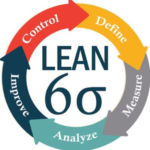
Kaizen, derived from the Japanese words “zen” meaning “good” and “kai” meaning “change,” is a powerful methodology that promotes continuous improvement in organizations across various industries. While it was initially popularized in the automotive and manufacturing sectors, Kaizen’s principles and practices have found widespread adoption in healthcare, construction, software development, education, logistics, and more.
Understanding Kaizen: The Philosophy of Continuous Improvement
At its core, Kaizen is a philosophy that emphasizes everyday improvement, involving every individual within an organization, and fostering a culture of continuous improvement. It was introduced to the world by Masaaki Imai in his book “The Key to Japan’s Competitive Success” in 1986. The principles of Kaizen can be summarized as follows:
- Every process can be improved: Kaizen recognizes that there is always room for improvement in any process, regardless of its current state.
- Continuous improvement is essential to competitiveness: Organizations must continuously strive for improvement to remain competitive in their respective industries.
- Defects and errors are usually the result of flawed processes, not people: Kaizen shifts the focus from blaming individuals to identifying and rectifying flawed processes that lead to defects and errors.
- Every person in the organization must be involved in improvement: Kaizen encourages the active participation of every employee, regardless of their role or level within the organization.
- Incremental changes can have a significant impact: Small, incremental improvements, when accumulated over time, can lead to significant positive changes in processes and outcomes.
How to Implement Effective Kaizen Project Management
While the concept of Kaizen is appealing to both leaders and employees, transforming it from a concept to daily action requires a well-defined plan. Here are the key steps to implementing effective Kaizen project management:
1. Embrace Many Small Ideas
Kaizen project management is not about seeking a single groundbreaking idea, but rather about gathering and acting upon numerous incremental improvements. It is crucial to establish a culture where no operational change is considered too minor. Encourage your team to document every opportunity for improvement they come across and provide them with a software platform to facilitate the process.
2. Focus on Improving Processes, Not Blaming People
A fundamental principle of Kaizen is that defects and errors are primarily the result of flawed processes, not individual incompetence. It is essential for project managers to avoid the temptation of blaming people and instead focus on identifying and rectifying process imperfections. By error-proofing processes, organizations can prevent future quality flaws and promote a culture of accountability and continuous improvement.
3. Eliminate Waste
Kaizen urges organizations to identify and eliminate waste within their processes. Waste refers to any task, activity, or expense that does not add value to the customer. Common examples of waste include excess inventory, unnecessary movement of objects or people, unused features, excessive inspection, and disorderly workspaces. Organizations should engage front-line employees in discussions about waste and provide training to help them identify and report it.
4. Introduce Standard Work
To measure the effectiveness of Kaizen improvements, it is crucial to establish a baseline by documenting the current best practices for each task. Standard Work provides a reference point for evaluating improvements and ensures that changes are intentional, orderly, and measurable. Setting standards does not stifle innovation; rather, it enables intentional and data-driven change.
5. Support Your Kaizen Program with Software
While it is possible to manage Kaizen projects without dedicated software, leveraging Kaizen software can significantly enhance the effectiveness of your program. Kaizen software provides a centralized platform for collecting improvement ideas, evaluating and implementing selected ideas, and tracking the progress of Kaizen projects. By using software, organizations can create a repository of knowledge and continuously build upon past improvements, making their project managers more knowledgeable and efficient with each change.
Going Beyond the Basics: Kaizen Events and the Kaizen Philosophy
In addition to the fundamental principles of Kaizen project management, organizations can also utilize Kaizen events and embrace the Kaizen philosophy to further enhance their continuous improvement efforts.
Kaizen Events: A Structured Approach to Improvement
Kaizen events are focused improvement activities that bring together cross-functional teams to address specific challenges or opportunities within a defined timeframe. These events follow a structured process that includes goal setting, current state analysis, improvement planning, implementation, review, and reporting. Kaizen events provide a concentrated effort to drive significant improvements in a short period, complementing the ongoing incremental improvements of daily Kaizen.
The Kaizen Philosophy: A Culture of Continuous Improvement
While Kaizen events provide a targeted approach to improvement, the true power of Kaizen lies in its ability to foster a culture of continuous improvement. When organizations consistently apply Kaizen principles and practices, it creates a mindset shift among employees. They begin to view improvement as an integral part of their daily work, constantly seeking ways to enhance processes and outcomes. This cultural transformation enables organizations to sustain continuous improvement efforts in the long run and adapt to changing business environments.








Responses